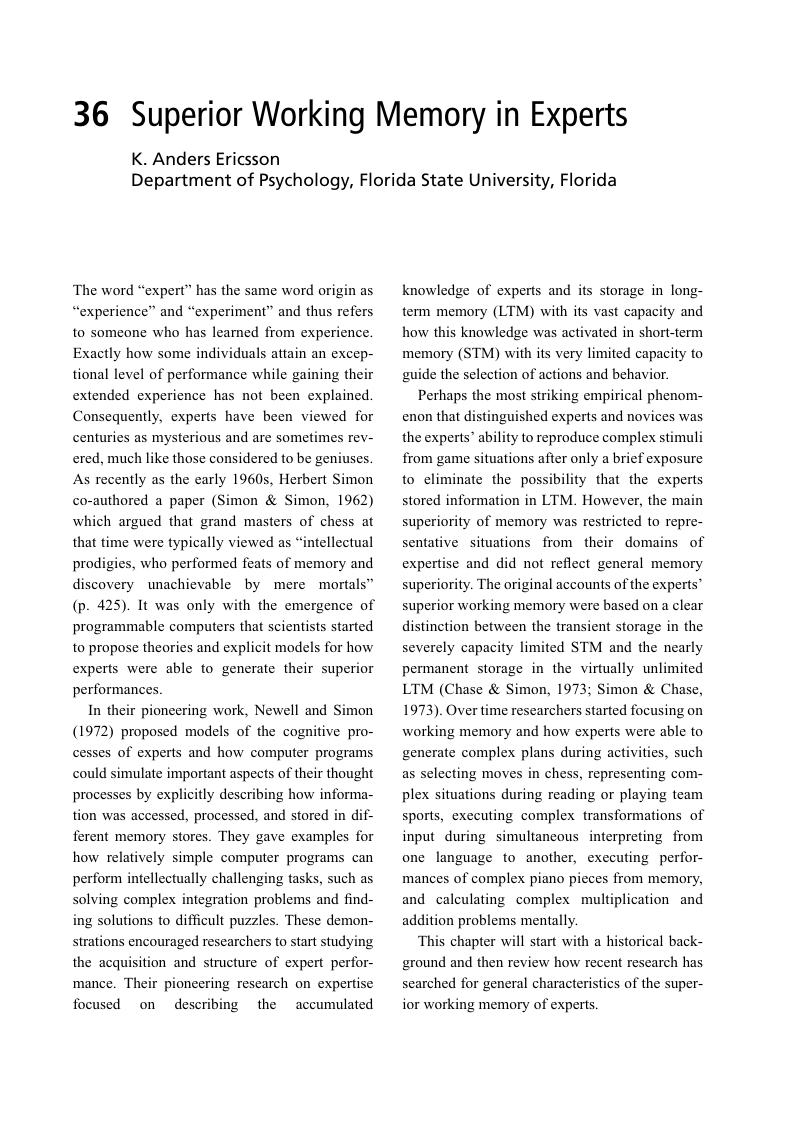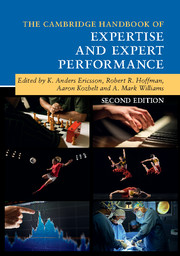Book contents
- The Cambridge Handbook of Expertise and Expert Performance
- The Cambridge Handbook of Expertise and Expert Performance
- Copyright page
- Contents
- Notes on Contributors
- Acknowledgments
- Part I Introduction and Perspectives
- Part II Overview of Approaches to the Study of Expertise: Brief Historical Accounts of Theories and Methods
- Part III Methods for Studying the Structure of Expertise
- Part IV Methods for Studying the Acquisition and Maintenance of Expertise
- Part V.I Domains of Expertise: Professions
- Part V.II Domains of Expertise: Arts, Sports, Games, and Other Skills
- Part VI Generalizable Mechanisms Mediating Types of Expertise
- 35 Superior Anticipation
- 36 Superior Working Memory in Experts
- 37 Expertise and Situation Awareness
- Part VII General Issues and Theoretical Frameworks
- Index of Subjects
- References
36 - Superior Working Memory in Experts
from Part VI - Generalizable Mechanisms Mediating Types of Expertise
Published online by Cambridge University Press: 10 May 2018
- The Cambridge Handbook of Expertise and Expert Performance
- The Cambridge Handbook of Expertise and Expert Performance
- Copyright page
- Contents
- Notes on Contributors
- Acknowledgments
- Part I Introduction and Perspectives
- Part II Overview of Approaches to the Study of Expertise: Brief Historical Accounts of Theories and Methods
- Part III Methods for Studying the Structure of Expertise
- Part IV Methods for Studying the Acquisition and Maintenance of Expertise
- Part V.I Domains of Expertise: Professions
- Part V.II Domains of Expertise: Arts, Sports, Games, and Other Skills
- Part VI Generalizable Mechanisms Mediating Types of Expertise
- 35 Superior Anticipation
- 36 Superior Working Memory in Experts
- 37 Expertise and Situation Awareness
- Part VII General Issues and Theoretical Frameworks
- Index of Subjects
- References
Summary

- Type
- Chapter
- Information
- The Cambridge Handbook of Expertise and Expert Performance , pp. 696 - 713Publisher: Cambridge University PressPrint publication year: 2018



